RBA women: Luci Ellis, Michele Bullock, Marion Kohler and Alex Heath
The Reserve Bank is arguably our most powerful financial institution – and these days women are increasingly driving its policy and operations.
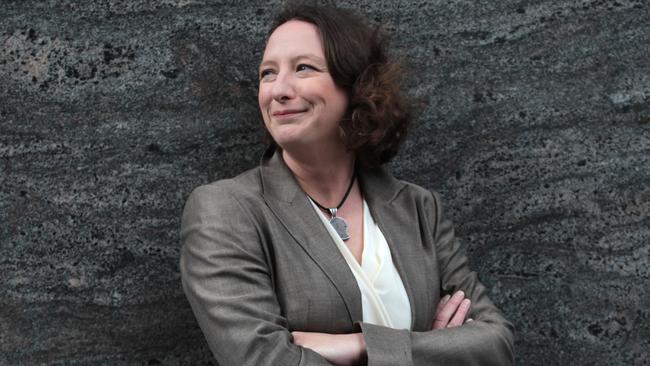
Life has changed at the top of the once male-dominated Reserve Bank. One of the key drivers behind the change, Governor Phil Lowe, who took over the top job in September last year, wants the public to see a very different face at its central bank – one where more women are at the top levels and are speaking in public.
“I hope people see us as balanced and representative of the community as a whole and not just a bunch of middle-aged men sitting around,” Lowe tells The Deal.
Traditionally, the public has seen the RBA through its governor, but in recent months a broader range of senior staff, including more senior women, has been out and about speaking for the bank. The RBA has an official target to have women make up half its management team – a jump from the present level of 32 per cent. Women make up 42 per cent of the total staff of more than 1300.
“It will take us a while to get there, but that is our aspiration,” says Lowe, who has already made some key appointments.
In October last year, Michele Bullock was appointed assistant governor (financial system); in December, Luci Ellis was appointed assistant governor (economic); and in January, Marion Kohler was appointed to head up the domestic markets.
‘Increasing the number of women at senior levels was already in train under Glenn Stevens.’
Other women in senior positions include Alex Heath, who became the first woman to head up the bank’s economic analysis department in 2014; Michelle McPhee, head of the banking department; Melissa Hope, who heads human resources; Jacqui Dwyer, head of information; and Catherine Parr, general counsel.
Lowe says increasing the number of women at senior levels was already in train under the governorship of Glenn Stevens, when Lowe was deputy governor.
“I was really keen to have a more balanced management team than the bank had in the past,” Lowe says. “It is something Glenn Stevens and I talked about over many years. When he and (former assistant governor) Malcolm Edey retired, it gave us the opportunity to put in place a more balanced team. It has happened under my watch, but it is really the culmination of a process we had been working at for quite a few years.”
Lowe says that the real problem is not so much retaining talented women but the shortage of women coming through universities with the right economic qualifications. And setting higher goals for hiring and promoting women has created a very competitive market for entry-level talent in the finance sector.
“Once women get here, they often like the environment,” he says. “The work is rewarding and the culture is good, and they want to be part of it. But we are finding it increasingly difficult to attract high-performing women out of universities as so many institutions have similar goals to ours. It is really important we increase the supply of women studying economics and finance.”
Lowe says when he looked at those studying economics at Year 12 in NSW recently, “it horrified me to find that for every girl studying economics there were two boys. I thought, how is the RBA and, more importantly, society as a whole going to achieve its goal of having a higher percentage of women in senior finance and economic roles when so few girls are studying economics?”
One answer, he says, is the “demonstration effect” when women represent the bank at public events.
“Until Michele Bullock was appointed (in 2016), there had never been a woman in a policy role at the RBA, at the level of governor or assistant governor,” he says. “If you were a young woman starting out, you might have thought it was not possible to get those roles. You look out over the 50 years of the RBA and you don’t see a woman in any of the senior policy roles. I have encouraged them to speak publicly and frequently in the hope it has a demonstration effect.”
The bank has also sponsored a scholarship for teachers to look at ways to make studying economics more attractive to girls. The governor is keen to get more girls in the bank’s work experience programs and has been a strong supporter of the Economic Society’s Women in Economics networking group.
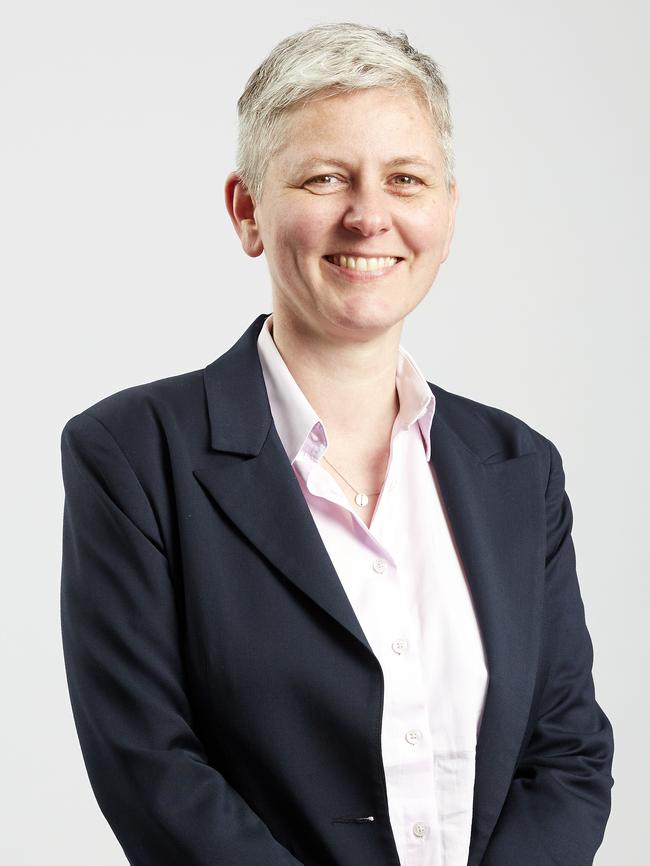
Luci Ellis has a map of China on her wall in her sparsely furnished corner office at the Reserve Bank’s offices in Martin Place. “Feel free to note that,” she jokes.
The chief economic adviser to the governor and board, overseeing the departments of economic research and analysis, Ellis is keenly aware of the importance of the Chinese economy to Australia.
“We have two people in Beijing as well as a local hire officer. We also have our Asian economies unit (in the Bank in Sydney), which is focused primarily on China but also on India. It is headed up by a former representative in our Beijing office who speaks fluent Mandarin.
“There is a lot more information and data available on China these days. It is different from the way a Western country would publish its data, because their economic system is different from ours. But it is very important to be able to anticipate and understand how their policymakers might think.
“Australia is a small, open economy that is always going to be affected by the rest of the world. China is very important.”
In December last year, Ellis became only the second woman to be appointed to the role of assistant governor. But her role as the bank’s chief economic adviser has made her the highest-profile woman in the bank, given her many public appearances this year.
She plays a critical role in monetary policy and briefs the board before each monthly meeting. She is tasked with formulating the bank’s recommendation on what action it should take as it reviews the country’s key interest rate – the RBA cash rate.
“The bulk of our work is directed around helping the board make a good decision around monetary policy,” she says.
Ellis is not afraid to speak her mind. On a panel at a recent conference in Sydney, she challenged comments by Business Council of Australia chief executive Jennifer Westacott, who was arguing about the critical need for more business tax cuts. Nonetheless, she is somewhat self-deprecating about her career, describing herself as “the silver medallist who got there”.
Even her decision to join the bank was accidental. She studied commerce at the University of Melbourne and would have probably ended up in academia, if it were not for the fall of the Berlin Wall.
‘In her early years, Ellis felt she was not on a rapid career trajectory.’
In 1989, Ellis was working part-time in a stamp shop to fund her honours year when the Wall fell and the stamp albums imported from Germany stopped coming. Business dropped away and Ellis was out of a job. The head of the economics department at her university suggested she apply for a cadetship with the bank.
From 1991, she worked in a range of positions in economic analysis, economic research and the payments policy department. “The lesson I got from that is that big events can have very unexpected consequences,” she says.
In her early years, Ellis felt that she was not on a rapid career trajectory. “I was always trying to improve, and kicking myself when things didn’t go exactly as I had hoped,” she says. “There were times in the nineties when I thought I might need to do something else.” But as someone who had come out as gay in her teenage years, she was wary of moving to the private sector.
“In the nineties I felt I would not fit into the private sector, for fairly obvious subcultural reasons,” she admits frankly. “I thought it would be really blokey and homophobic. In the nineties it was probably so.”
Ellis further upgraded her academic skills, doing a Masters and later a PhD while working full time at the bank. Her big break came in 2007 when she went to Switzerland for a two-year stint at the Bank for International Settlements.
There she had a first-hand look at the onset of the global financial crisis through the collapse of the US mortgage market.
“Being at the BIS, I was more alerted to the turmoil which was going on in world markets than I would have been had I been in Australia, which was relatively untouched by the financial market gyrations in 2007 and most of 2008,” she says.
“I was on the international monitoring desk at the BIS and realised that there was something seriously wrong with the US mortgage market. It wasn’t just the sub-prime mortgages, there were some deeper issues in the broader US mortgage market.”
In 2008, on a stopover at Singapore Airport on her way home, she learned the financial crisis had spread to Australia and the Rudd government was stepping in to announce government guarantees for the banking system. Promoted to head up the bank’s financial stability department, she found herself at the coalface as the bank worked behind the scenes to handle applications from financial institutions for government backing.
“It was quite a defining moment for me about why we were here at the RBA,” she says. “We ended up having to implement the government guarantee. We had to physically administer and approve applications for the government guarantee. We had to create a process, put together a database, build a website and develop an approval process – all in a very short space of time.”
At the time she was working for Phil Lowe (then assistant governor in charge of the financial system). “Phil told us the best thing we could do for Australia’s financial stability was to get this done … The experience underlined for me the incredible importance of being able to do good works.”
As chief economist, Ellis is still very conscious of the role of the housing market in the Australian economy, and of rising household debt levels.
“We have much higher debt levels than we used to in the household sector in Australia and we don’t quite know how it will play out,” she says. “We don’t know how much more vulnerable it would make the household sector in the event something bad happened. If things were to weaken, the household sector now carries more debt and people are more likely to become distressed as a consequence.”
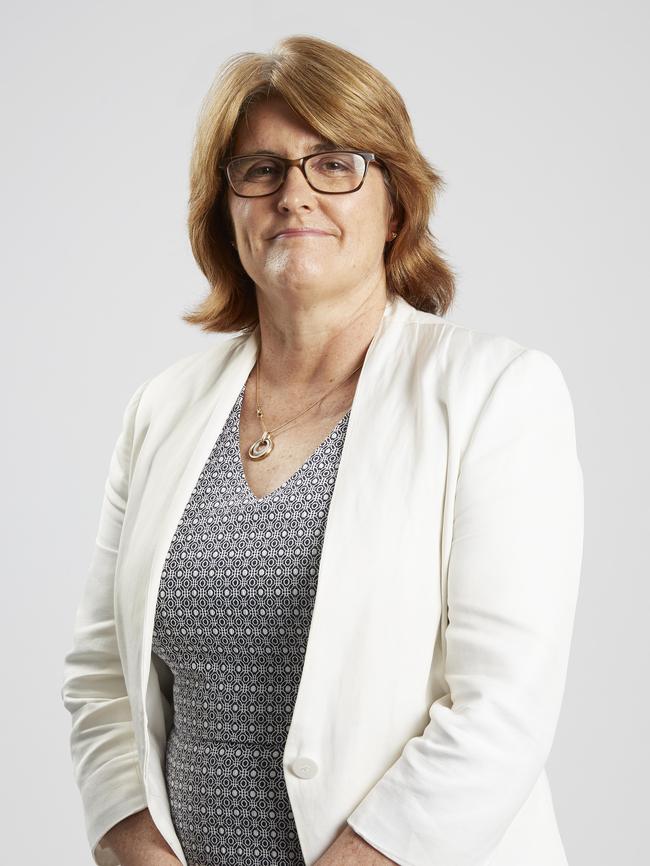
Michele Bullock is a keen observer of the way that technology will shape Australia’s payments system.
“There are a lot of things going on in the payments space that are all about technology,” says Bullock, whose job involves heading up the bank’s oversight of the Australian payments system. “Our job is not necessarily to regulate it, but to make sure that there is competition, at the same time making sure that it is safe for people.”
Bullock is working with the banking industry on a New Payments Platform (NPP), which will use a fast settlement service provided by the RBA to allow every payment to settle in real time, at any time, regardless of its size.
“We had identified a gap in the payments system,” she says. “The industry wasn’t solving it, so we gathered people together. We didn’t want to regulate it. What the industry has done, with our help and encouragement will introduce what will be a very significant piece of payments infrastructure for many years to come. You and I will be able to sit here and, within a few seconds, change money on our mobile phones.
“Cash is really the only way at the moment you can do that. It’s going to be very exciting technology.”
The bank will be one of 13 shareholders in the NPP, which includes all the major banks.
Bullock, who grew up in the northern NSW town of Armidale, studied economics at the University of New England. She joined the RBA in 1985 in the economics department and did a Masters at the London School of Economics, before returning to Sydney.
‘In 2010, Bullock was the first woman to become an assistant governor of the bank.’
In 1998 she was appointed to the newly established payments department. A new payments division had been set up in the RBA as a result of the recommendations of the 1996-97 Wallis inquiry into the financial system. Wallis recommended that supervision of the banking system be moved to a new body, the Australian Prudential Regulation Authority (APRA). The RBA was given new regulatory powers and Bullock was appointed chief manager of the payments policy department – effectively the deputy.
“It was fabulous,” she recalls. “We had a new set of powers and new legislation. We almost had a blank sheet of paper. We had a mandate to pursue efficiency, competition and stability in the payments system.
In 2010, Bullock was the first woman to become an assistant governor of the bank – one of six people at assistant governor level. She became assistant governor (currency) and chair of Note Printing Australia, the subsidiary in charge of printing Australia’s bank notes.
The appointment came in the wake of a scandal over offshore dealings of representatives of NPA’s sister company, Securency International, which included allegations of bribery to get offshore note printing contracts.
In her present job, Bullock has two main responsibilities: producing the bank’s twice-yearly report on financial stability, and heading its supervision of the payments system. The stability report outlines the potential risks to the financial system.
“We are trying to look at what might be the outliers that could bring us unstuck,” she says. “We monitor financial markets, households and businesses. Our focus is very much on what risks they might bring. We don’t want financial instability – it generates bad outcomes for the economy, bad outcomes for householders and business.”
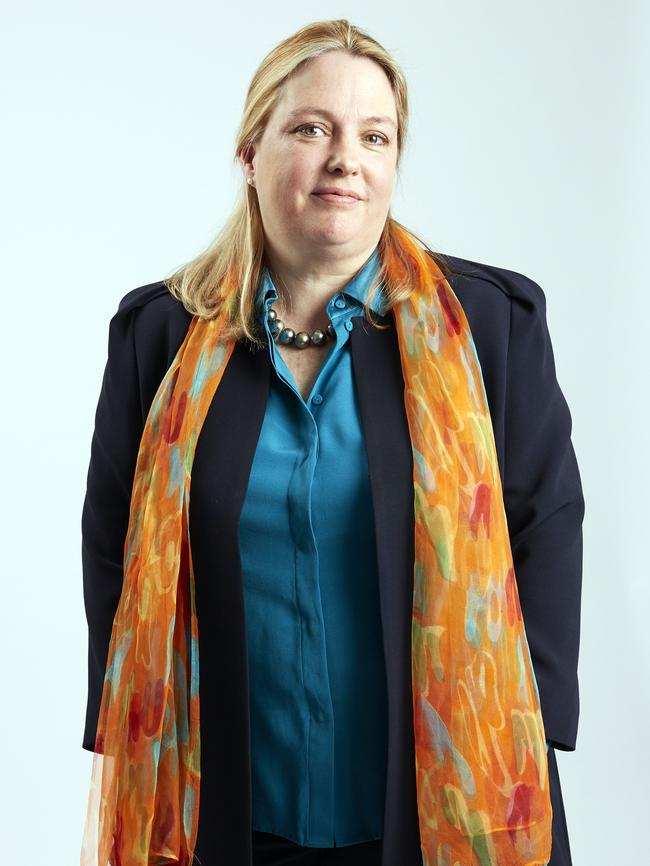
When Marion Kohler was interviewed for the job of head of the bank’s domestic markets business last year, she argued that she brought something different to the role.
Born in Germany, she took a PhD at the European University Institute in Florence, and worked at the Bank of England before moving to Australia, joining the RBA in 2001.
“I am a first-generation migrant to Australia,” she says. “So is a quarter of the Australian population.”
Kohler is the most senior executive at the bank whose native language is not English.
“Having a good command of English is important in this job, but I think I have demonstrated that you don’t need to be born with the language to have that.
“I am not a career RBA staffer. I started my career elsewhere and I have not always been in central banking. I feel my background is more representative of many of the people we see every day in Australian society.”
Kohler, who describes herself as “bilingual Italian-German”, says she can also “get around in French and Spanish if I have to go to a market or make small talk on the sidelines of international conferences”. She is now trying her hand at Mandarin.
Her background gives her extensive contacts in the central banks of Europe. She was deputy head of the RBA’s international department until she was promoted to her present job in January this year, the first woman to take charge of the bank’s $2 billion a day open market operations. Her job is to head up the team that goes into the money market each day to make sure the official cash rate comes in at the level set by the bank board each month (currently 1.5 per cent).
“The board decides on a target cash rate and my department implements the cash rate,” she says.
“We are in the short-term repo market at somewhere between $1.5 billion and $2 billion a day, every day. Most of the time we are lending out money and getting securities that unwind after a certain term – roughly a month.”
Kohler is at her desk around 7.30 each morning and checks the overnight economic and market data. She discusses it with her team and briefs the bank’s senior management. Just after 9am, there is a meeting to decide how much the bank needs to spend in the daily open market operations.
“We advertise the rate to the markets. We say ‘today we are going to inject that amount of cash into the system’ and on what terms. At 9.45am we go into the dealing room. The actual operation takes about 10 to 15 minutes. At 10am I take a deep breath, get myself a coffee and begin a daily series of meetings.”
‘Kohler says her career has been based on independent thinking.’
Her job also involves watching the markets during the day to make sure there is enough liquidity in the financial system.
“We have a hand in ensuring that liquidity is sufficient for payments to flow,” she says. “Often at 5pm we have another assessment on whether we need to do any additional operations – whether the system liquidity is too long or too short going into the evening.”
So far Kohler has not had to deal with any dramatic or unexpected shocks to the Australian system. But her department closely watches events around the world that could affect liquidity in the markets, including political tensions in Spain, North Korea’s nuclear missile threats – and President Trump’s tweets.
Her role also includes making sure the bank has back-up plans in the event of a crisis, including having another site where dealing room staff can work if there are operational problems at Martin Place.
“A big part of what we do is ensuring we have contingency arrangements – instruments, operations, rules and escalation procedures – if for some reason things are operationally down here. Touch wood, we haven’t had another situation like the GFC. But in that case the bank stepped in and provided extra liquidity in the short term.”
Kohler had worked in academia in Germany before doing her PhD in Italy and moving to London with the Bank of England. She came to Sydney in 2001, following her Australian partner. She worked for the RBA’s economic research and analysis departments before heading off to Europe again. She spent two years at the Bank for International Settlements, in Switzerland, and this time she had a young family in tow.
Back home in 2011, she became deputy head of the RBA’s economic analysis department and then deputy head of the international department.
She says this year has been a “steep learning curve”.
“I have had experience monitoring the economy but it was something new to see the plumbing – to see how things were actually implemented. Little things happen all the time and you think ‘Hmmm. That wasn’t in the textbook’, but you just work through them.”
All central banks face similar challenges, she says. “Central banking is a profession that is incredibly internationally transferable. Central banks in advanced economies operate, broadly speaking, within a similar framework.”
But she argues that ours is more collegial than others, with top management actively seeking the views of all levels of staff.
“I have always felt there was extraordinary access to the decision-makers, even if you are not quite at the senior level,” she says. “The senior people here – Phil Lowe and Glenn Stevens before him – have always actively sought out alternative views to a problem and to test out any answers.”
She says the governor and deputy governor will often sit in on meetings when her staff is discussing the latest round of economic data to hear what everyone is saying, “not just the filtered view from the senior staff”.
Kohler, who became an Australian citizen 10 years ago, says her career has been based on independent thinking and being prepared to give things a go.
“I have always had a good environment of smart, clever people who have pushed me,” she says. “The question for me is being open to the opportunities that are there and sometimes taking the plunge and saying ‘I will give it a go and try it’.”
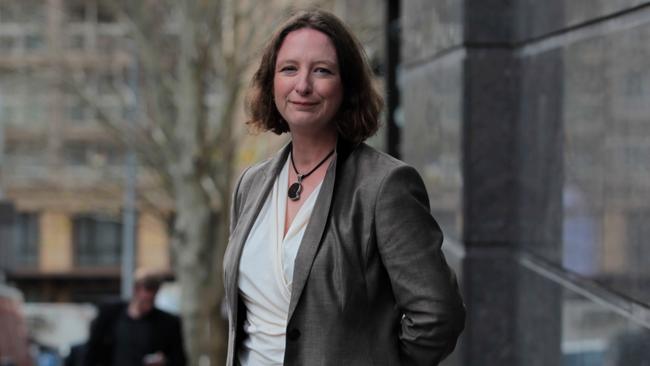
Alex Heath remembers working in the Reserve Bank’s international department during the global financial crisis when the world was reeling from each new piece of bad economic news.
“I remember seeing a big fall in the Japanese trade data and thinking: “Nah. Someone has typed the data in wrong,” says Heath, who was deputy head of the department at the time. “It was such a big fall. Night after night you would get these big falls. Trade was the first to go.
“The rate of information flow was huge and we were all asking: What does it all mean? We had never seen things like that before. It is one of those instances where the economics training you have had ingrained in you comes to the fore.”
Heath joined the bank in 1992 after doing economics at Sydney University. After a few years’ work, she went to the London School of Economics to do a PhD. “I was taught macro economics by Charlie Bean, who went on to become deputy governor of the Bank of England,” she recalls. “Bean was a fabulous teacher. He was very good at saying: ‘Here is your theoretical model, but here is the practical question you may face one day’.”
‘Heath shares Lowe’s concern about the lack of young women coming through in economics and science.’
Like Ellis and Kohler, she honed her international economics experience with two years’ work at the Bank for International Settlements in Switzerland. She went on to become the second woman deputy in the bank’s international department, the first woman deputy head of its domestic markets department, the first woman to head its economic research department in 2012, and in 2014, the first woman to head the economic analysis department.
Heath, who reports to Luci Ellis, says the big change in economic analysis is the increasing availability of micro data. Her department also oversees a program of regular consultation with the business community on the state of the economy.
She is also the executive sponsor of the Reserve Bank’s gender equity resources group, and says she has been disappointed at the lack of progress of women at the senior levels of the Australian workforce, including in the economics profession.
“When I went through studying economics it was a male-dominated profession,” she says. “As I got older, there was a bit of a sense that things would improve organically. They have improved, but not by as much as I would have expected.”
Heath shares Phil Lowe’s concern about the “pipeline problem” – the lack of young women coming through in economics and science. In NSW, she says, there are now four girls studying STEM subjects to every five boys. “For economics, there is only one girl for every two boys.”


To join the conversation, please log in. Don't have an account? Register
Join the conversation, you are commenting as Logout